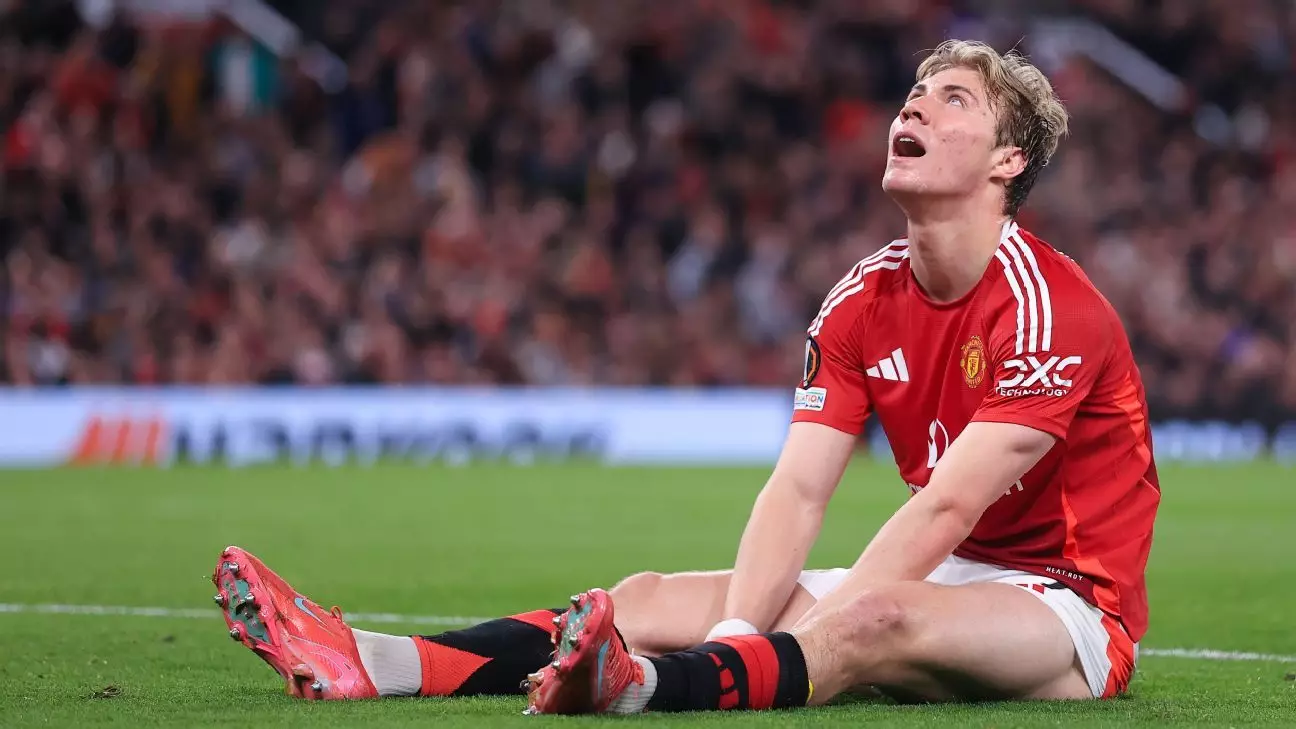In the landscape of modern football, the transfer market can often appear as a convoluted maze of negotiations, inflated prices, and contractual complexities. For Manchester United, the recent changes in recruitment strategies signal a conscious effort to navigate this intricate world more effectively. Under Ed Woodward’s previous leadership, the club’s transfer policy seemed almost haphazard, characterized by perceived overpayment for players and drawn-out negotiations influenced by a “United tax.” This situation drew criticism from fans and pundits alike, and it became increasingly clear that if Manchester United was to reclaim its former glory, a strategic overhaul was essential.
The recent acquisition of Matheus Cunha illustrates a marked departure from the previous transfer dealings at Old Trafford. By activating a release clause, the management has streamlined the recruitment process and removed the ambiguity surrounding fee negotiations. This pragmatic approach not only enhances clarity but also demonstrates an understanding of the evolving dynamics of football transfers in today’s marketplace.
Emphasizing Financial Discipline
The backdrop of Manchester United’s transfer ambitions is underscored by financial prudence. In light of their struggles last season—one of their worst in over five decades—the club’s leadership, represented by CEO Omar Berrada, now prioritizes a balanced approach to player acquisitions. This intelligent shift involves adopting a set financial framework for negotiations, thereby avoiding the pitfalls that have plagued past signings like Casemiro and Antony. Losing approximately £150 million in short-term panic purchases left a scar, and the current administration seems keen to avoid repeating those missteps.
This shifting narrative signals a broader intention behind the scenes. By establishing a “price point” for potential recruits, Manchester United is asserting control over its financial operations during an era rife with economic uncertainty. The willingness to forgo expensive targets in favor of more reasonable valuations is a paradigm shift that aligns with the realities of the modern game, characterized by fiscal responsibility and tactical consistency.
The Release Clause Advantage
Taking a cue from past experiences, the club’s latest maneuvers highlight a tactical embrace of release clauses—a tool previously sidelined during the Woodward era. The Cunha deal exemplifies how release clauses can simplify complex transfers. Future endeavors to acquire talents like Bryan Mbeumo, Antoine Semenyo, or Eberechi Eze will hinge on recognizing the value of this mechanism in achieving strategic long-term objectives.
This approach stands in stark contrast to the grueling, often contentious negotiations that characterized past transfer windows. The straightforward nature of release clauses allows clubs to minimize the time spent in boardrooms, swiftly executing deals and concentrating resources on adjustments rather than conflicts. Moreover, the lessons from both the successes and failures of previous signings will undoubtedly shape the club’s next steps.
The Competition Landscape
However, Manchester United’s transformation is not occurring in a vacuum. Rivals like Newcastle United grapple with similar challenges, often facing inflated demands due to their financial backing. This situation illustrates a wider phenomenon within the football economy—one where deep-pocketed owners inadvertently inflate player prices, requiring clubs to be increasingly vigilant and strategic in their recruitment approaches.
Moreover, this environment creates an uneasy balance for all parties involved. As Manchester United navigates these competitive waters, it will need to differentiate itself not only through recruitment but also by developing home-grown talent and fostering a resilient squad that can rise to the challenges of domestic and European competitions.
Looking Ahead: Building a Robust Future
With the elimination of European football in the upcoming season, Manchester United faces a unique situation that can either hinder or propel their rebuilding efforts. Strategic financial planning, decisive recruitment, and the capacity to adapt to an ever-evolving marketplace are critical components that will shape the club’s trajectory.
The groundwork laid out by Berrada and his team hints at a mindset geared toward sustainable success rather than immediate gratification. By carefully assessing player value, avoiding overinflated offers, and cultivating a roster that blends youth and experience, there is room for optimism.
As the club redefines its approach to recruitment, the effort must not just focus on securing high-profile talents but also on fostering a winning culture within the squad. It is this mix of strategic foresight, financial discipline, and a commitment to both excellence and pragmatism that will ultimately dictate Manchester United’s resurgence in the football hierarchy.

